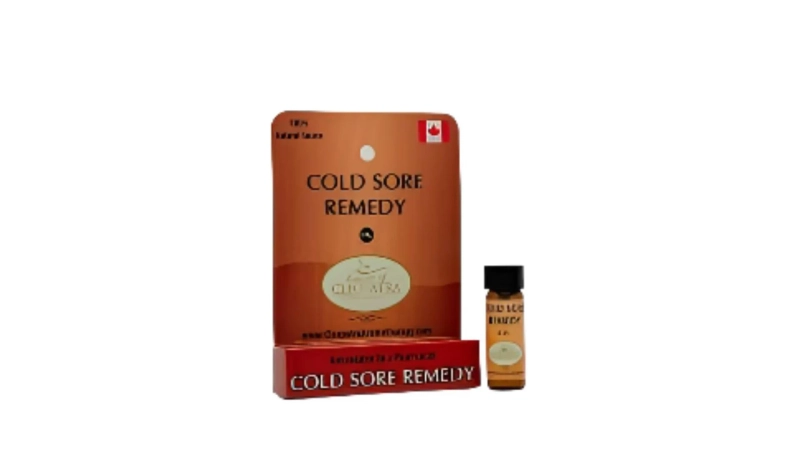Cold sores can be painful, annoying, and downright embarrassing. These tiny blisters usually pop up around the mouth and can take days to heal. People often search for quick and natural ways to ease the discomfort. Among home remedies, tea tree oil for cold sores has gained huge attention. Many swear by its antibacterial and anti-inflammatory powers, saying it helps soothe irritation and speed up recovery. But does it really work? Let’s dive into what science and experience reveal.
Understanding Cold Sores
Cold sores are caused by the herpes simplex virus (HSV-1). Once infected, the virus stays in the body and can flare up due to stress, a weak immune system, or even sun exposure. These outbreaks usually start with a tingling or burning sensation before blisters appear.
Conventional treatments often include antiviral creams or pills. However, not everyone wants to rely on medications every time a sore shows up. That’s why many people turn to natural options like essential oils.
Why Tea Tree Oil Stands Out?
Tea tree oil is extracted from the leaves of the Melaleuca alternifolia plant, native to Australia. It’s known for its strong antiseptic and healing properties. Researchers have found that tea tree oil has compounds such as terpinen-4-ol, which may fight bacteria and viruses.
For people dealing with cold sores, these qualities make it a tempting natural remedy. Applying diluted tea tree oil can help dry out the blister and reduce redness. Its cooling effect also calms itching and irritation.
How It Works on Cold Sores?
The oil’s antiviral properties may help limit viral activity on the skin’s surface. When used early, it might slow down the virus’s spread and shorten healing time. The anti-inflammatory nature of the oil eases pain and swelling.
However, it’s important to note that pure tree oil can be harsh. Always mix it with a carrier oil like coconut or almond oil before using it. A few drops of tree oil for cold sores blended with a teaspoon of carrier oil is usually enough. Apply gently using a cotton swab a few times a day.
The Science Behind the Remedy
Studies on tea tree oil’s effect on herpes viruses are limited but promising. Some laboratory tests suggest it may damage the virus’s outer shell, reducing its ability to infect cells. However, more human studies are needed to confirm how well it works in real-life situations.
That said, many users report visible improvements within a few days of consistent use. They often describe less pain, faster healing, and fewer flare-ups over time.
Other Benefits Beyond Cold Sores
Tea tree oil isn’t just a one-trick remedy. It’s often used in skincare and aromatherapy for its versatility. People mix it with relaxing essential oils for sleep to calm the mind or blend it into a relaxing massage oil to ease sore muscles. Its natural scent and antibacterial traits make it a popular choice for home remedies.
It can also be part of your stress relief routine. Chronic stress can trigger cold sore outbreaks, so relaxation plays a key role in prevention. Adding tea tree oil to your wellness routine, alongside an essential oil for stress relief, can help keep both your mind and skin balanced.
Safety Tips and Precautions
While tea tree oil offers several benefits, it’s not without risks. Using it undiluted can cause burning or dryness. Always patch-test it on a small area of skin first. Avoid swallowing or applying it near your eyes.
If your cold sores don’t improve after a few days or worsen, consult a doctor. Tea tree oil can complement medical treatment but shouldn’t replace antiviral medicine for severe cases.
Also, pregnant or breastfeeding women should check with their healthcare provider before using essential oils. Children’s skin is more sensitive, so extra caution is needed.
Combining Tea Tree Oil with Other Remedies
To boost healing, keep your lips moisturized and avoid picking at blisters. Use lip balms with soothing ingredients like aloe or shea butter. Some people pair tea tree oil with other natural products like peppermint or lavender oils for added relief.
Massage therapists also mix it into blends for joint & muscle pain relief, taking advantage of its cooling and anti-inflammatory effects. This versatility makes tea tree oil a staple in many households.
Wrapping Up
Tea tree oil offers a natural, affordable way to deal with cold sores. Its antiviral and soothing properties can ease discomfort and promote faster healing when used correctly. Although research is still developing, many users find it helpful for both prevention and relief.
If you want to try it, start small, dilute it well, and stay consistent. Combine it with healthy habits, proper rest, and stress management for the best results. From skincare to relaxation, this essential oil proves to be a handy companion in your self-care routine, especially when used responsibly and with care.


